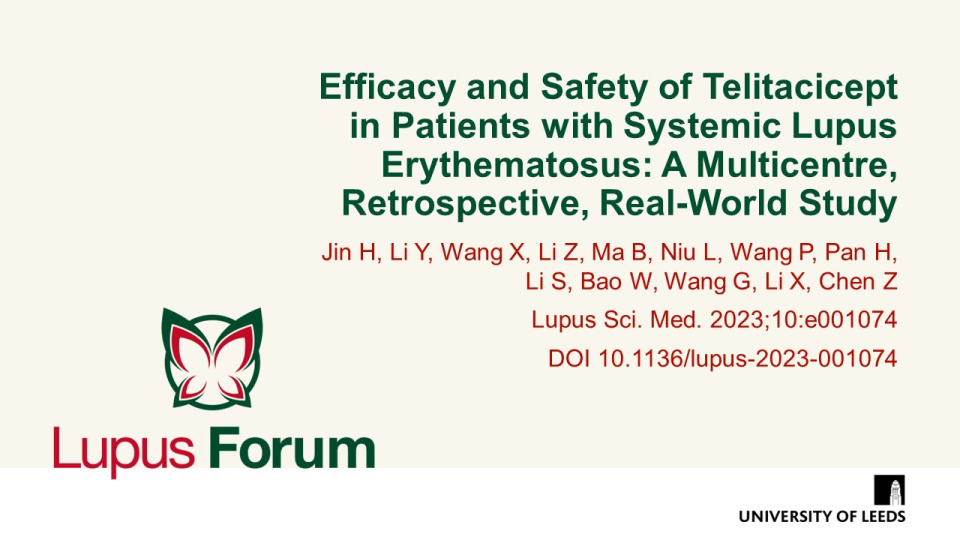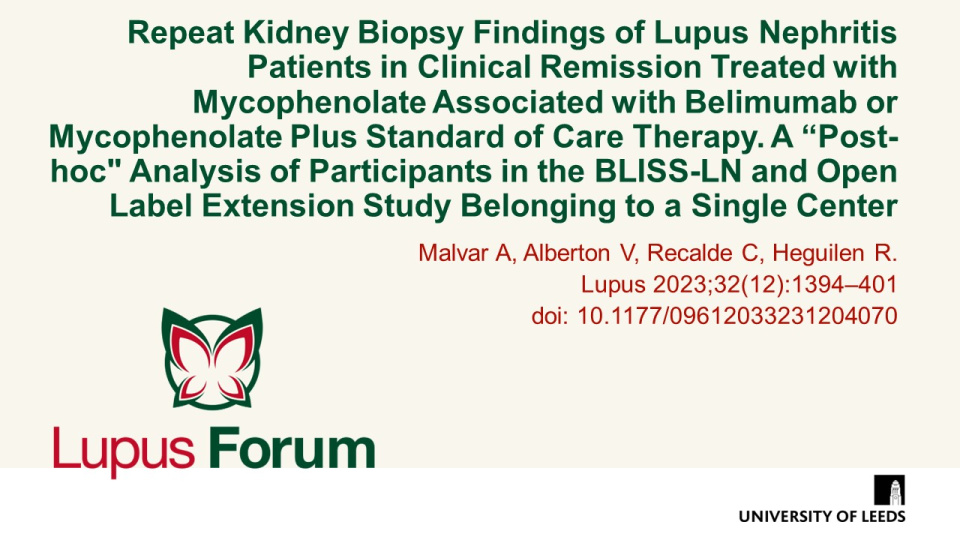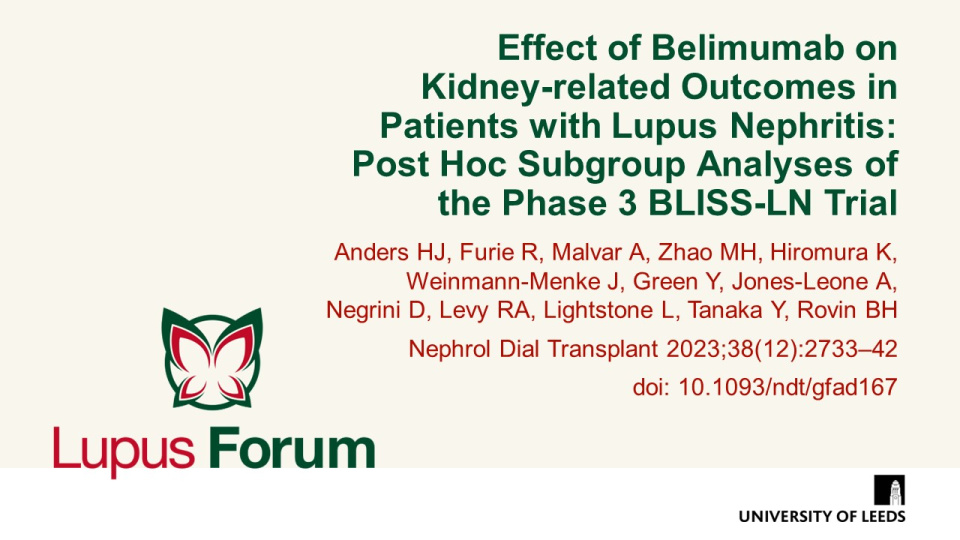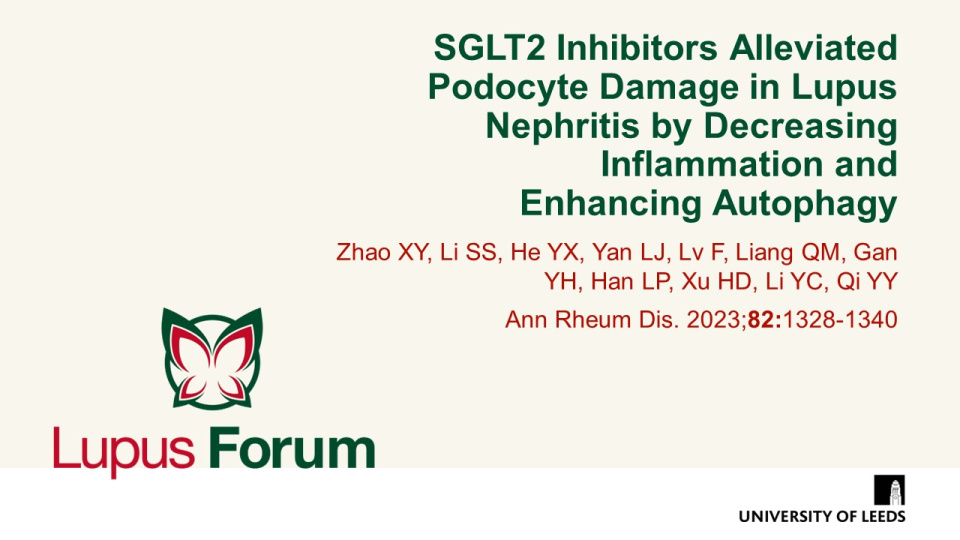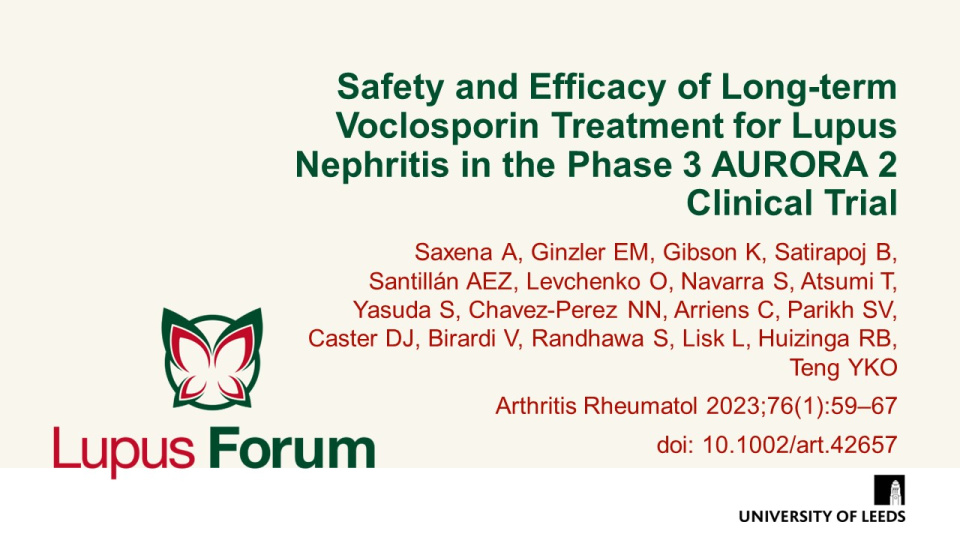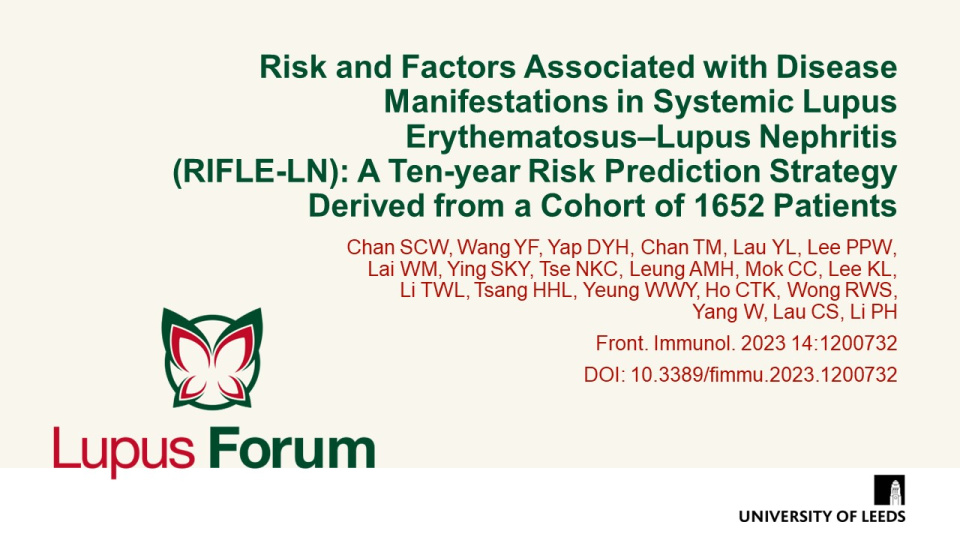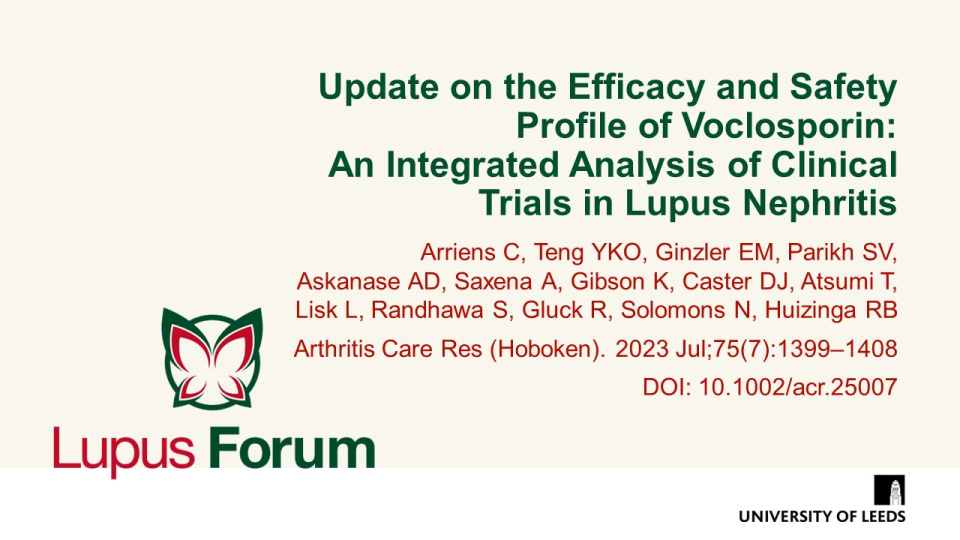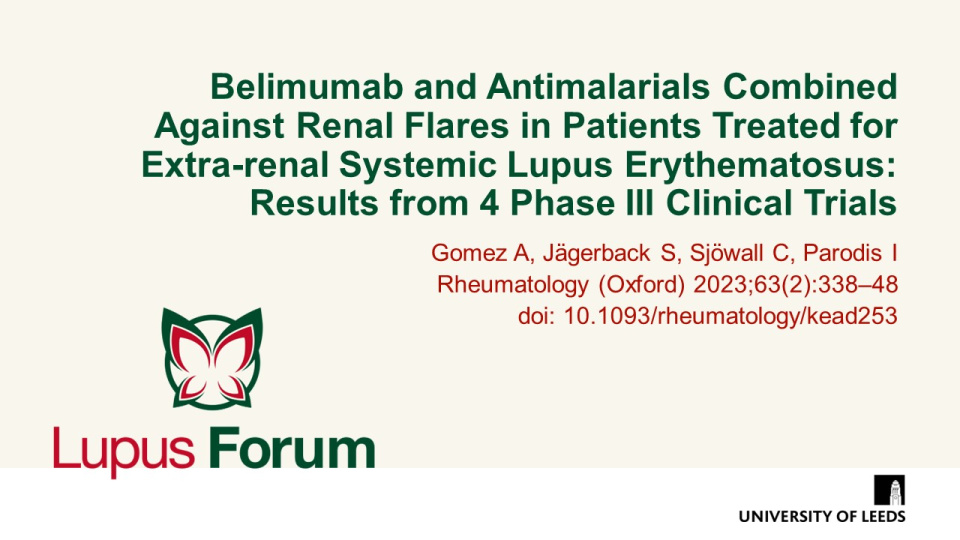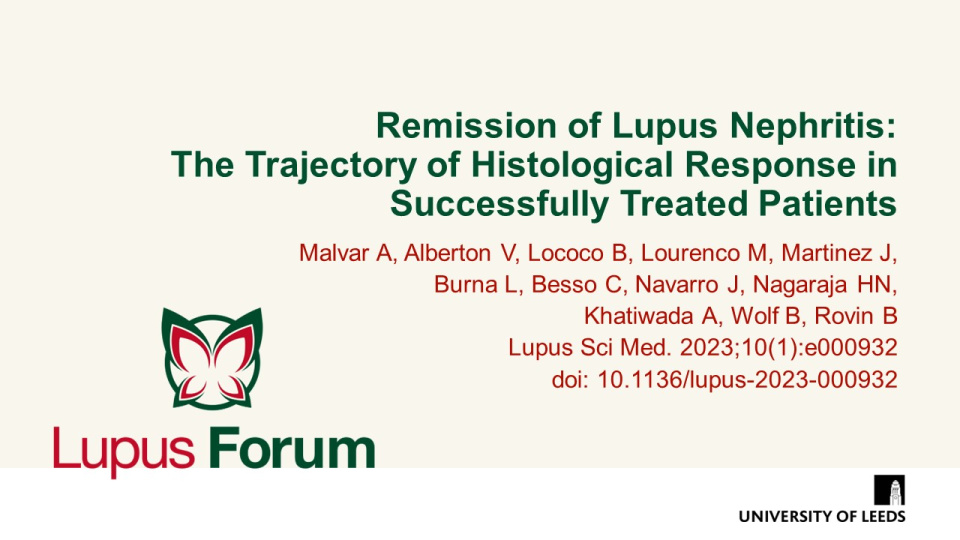Publications
Find coverage of the latest original articles on Lupus, focusing on those with data on therapeutic interventions and those that have clinical impact.
Efficacy and Safety of Telitacicept in Patients with Systemic Lupus Erythematosus: A Multicentre, Retrospective, Real-World Study
Lupus Sci. Med. 2023;10(2):e001074 DOI 10.1136/lupus-2023-001074
In this study, telitacicept add-on therapy demonstrated desirable real-world safety and efficacy profiles for the management of SLE, LN, and patients with haematological abnormalities.
Repeat Kidney Biopsy Findings of Lupus Nephritis Patients in Clinical Remission Treated with Mycophenolate Associated with Belimumab or Mycophenolate Plus Standard of Care Therapy. A “Post-hoc" Analysis of Participants in the BLISS-LN and Open Label Extension Study Belonging to a Single Center
doi: 10.1177/09612033231204070 Epub ahead of print
Single-centre study concludes that adding belimumab to the standard of care treatment with mycophenolate (MMF) increases the possibility of achieving a complete clinical response (CCR), complete histological response (CHR), and a lower rate of relapses during treatment and long follow-up.
Effect of Belimumab on Kidney-related Outcomes in Patients with Lupus Nephritis: Post Hoc Subgroup Analyses of the Phase 3 BLISS-LN Trial
Nephrol Dial Transplant. 2023;38(12):2733–42 doi: 10.1093/ndt/gfad167 Epub ahead of print.
These data highlight the consistent benefit of belimumab versus placebo, combined with standard therapy, on kidney outcomes in both newly diagnosed and relapsed patients, and regardless of the use of GC pulses at induction.
SGLT2 Inhibitors Alleviated Podocyte Damage in Lupus Nephritis by Decreasing Inflammation and Enhancing Autophagy
Ann Rheum Dis. 2023 DOI: 10.1136/ard-2023-224242
Data revealed a renoprotective effect of SGLT2 inhibitors by reducing proteinuria and preserving renal function in the murine MRL/lpr lupus model.
Safety and Efficacy of Long-term Voclosporin Treatment for Lupus Nephritis in the Phase 3 AURORA 2 Clinical Trial
Arthritis Rheumatol. 2023;76(1):59–67 DOI: 10.1002/art.42657
AURORA 2 demonstrated the safety and tolerability of continued administration of voclosporin over 3 years of treatment in patients with LN.
Keywords:
Risk and Factors Associated with Disease Manifestations in Systemic Lupus Erythematosus - Lupus Nephritis (RIFLE-LN): A Ten-year Risk Prediction Strategy Derived from a Cohort of 1652 Patients
Front Immunol. 2023 14:1200732 DOI: 10.3389/fimmu.2023.1200732
Using data from a longitudinal cohort of SLE patients of Chinese origin, the authors identified risk factors for LN and developed a prediction model, RIFLE-LN, which demonstrated good performance in a testing cohort of 270 patients.
Update on the Efficacy and Safety Profile of Voclosporin: An Integrated Analysis of Clinical Trials in Lupus Nephritis
Arthritis Care Res (Hoboken). 2023 Jul;75(7):1399–1408 DOI: 10.1002/acr.25007
Pooled analysis of data from the AURA-LV phase 2 and AURORA 1 phase 3 trials of voclosporin in patients with active LN demonstrated that significantly more patients achieved a complete renal response at 1 year in the voclosporin than the control group (p<0.0001), with no observation of new safety signals.
Clinical and biomarker responses to BI 655064, an antagonistic anti-CD40 antibody, in patients with active lupus nephritis: a randomized, double-blind, placebo-controlled, phase II trial
Arthritis Rheumatol. 2023;75(11):1983–93 doi: 10.1002/art.42557.
This phase II study of BI 655064 in patients with active LN did not meet the primary endpoint of CRR at Week 52, however, post-hoc analyses suggest a potential benefit of BI 655064 180 mg in patients with active LN.
Belimumab and antimalarials combined against renal flares in patients treated for extra-renal systemic lupus erythematosus: results from 4 phase III clinical trials
Rheumatology (Oxford) 2023;63(2):338–48 doi: 10.1093/rheumatology/kead253
The protection conferred from belimumab against renal flare development in patients treated for extra-renal SLE appears enhanced when administered along with antimalarials (AMA).
Remission of Lupus Nephritis: The Trajectory of Histological Response in Successfully Treated Patients
Lupus Sci Med. 2023;10(1):e000932 doi: 10.1136/lupus-2023-000932
LN histological activity takes months to years to resolve, providing a rationale for the need of long-term, well-tolerated maintenance immunosuppression.


